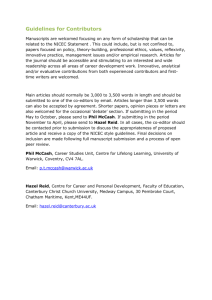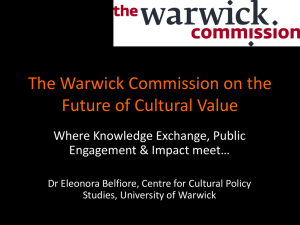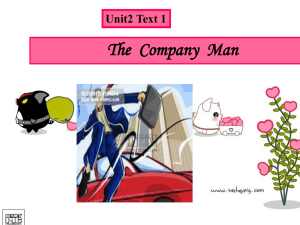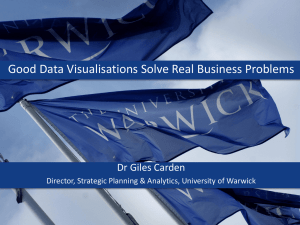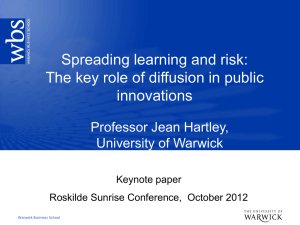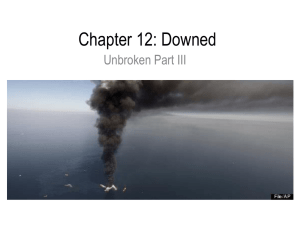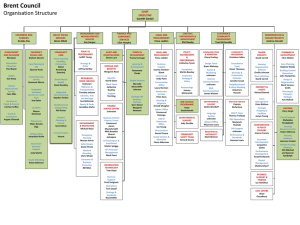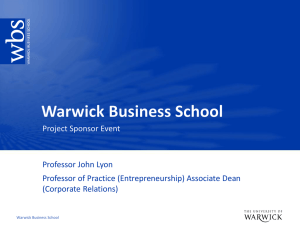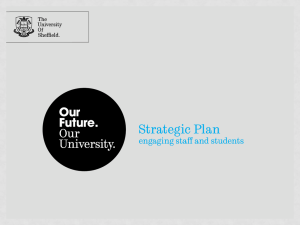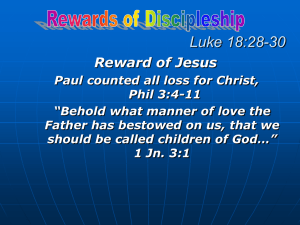career - University of Reading
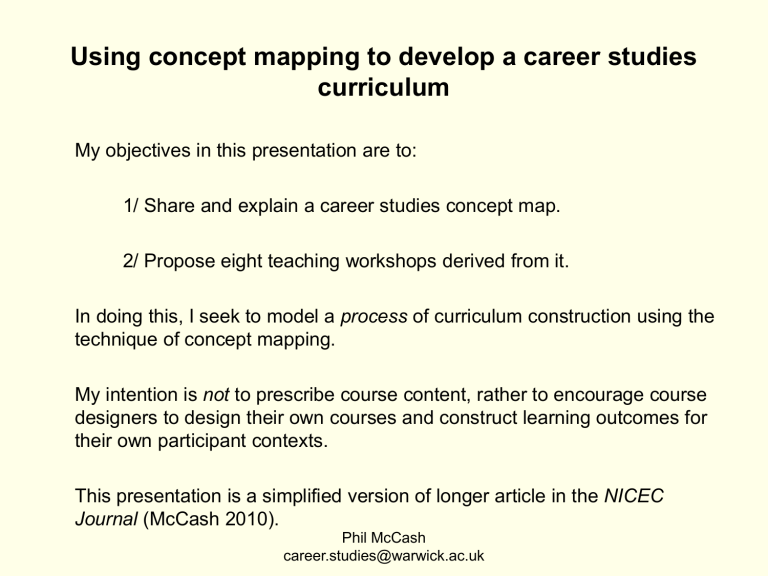
Using concept mapping to develop a career studies curriculum
My objectives in this presentation are to:
1/ Share and explain a career studies concept map.
2/ Propose eight teaching workshops derived from it.
In doing this, I seek to model a process of curriculum construction using the technique of concept mapping.
My intention is not to prescribe course content, rather to encourage course designers to design their own courses and construct learning outcomes for their own participant contexts.
This presentation is a simplified version of longer article in the NICEC
Journal (McCash 2010).
Phil McCash career.studies@warwick.ac.uk
Introducing concept mapping
I have been influenced by the work of Amundsen et al . (2008) who have used Novak’s concept mapping techniques to support the analysis and development of course content by course designers.
Concept mapping is valuable in our context as we are still at the early stages of discussing and debating what a career studies curriculum might look like.
The concept maps enable us, as course designers, to articulate the kinds of concepts that are relevant to a particular course.
An example of a career studies concept map is shown overleaf………
Phil McCash career.studies@warwick.ac.uk
Career and
Learning
Career
Narratives
Career
Visions of the
Future
Career Types
Career
Management
Styles
Phil McCash career.studies@warwick.ac.uk
Career
Ethics
Career
Development
Beliefs
Career
Labour
Market
Intelligence
Explanation of the concept map
Note that the 8 purple circles represent clusters of concepts. In other words, these are not messages or desired behaviours, rather these represent clusters of, often competing or contradictory, concepts along similar themes.
For example, the career management styles cluster represents the many competing versions of career management that exist in the academic literature and in wider life.
The central challenge implicit in this way of looking at career education is to design learning experiences that enable participants to articulate their own beliefs and values, compare these to others, and then refine these further.
This can be seen as a move away from telling career to teaching career. I would be interested to receive examples of alternative concept maps.
Phil McCash career.studies@warwick.ac.uk
Career and
Learning
This workshop is designed to help each participant develop a view about which aspects of career can be explicitly learnt and indeed taught.
1/ Knowledge and understanding: participants will be able to describe at least two approaches to tacit and explicit career-related learning.
2/ Evaluation and application: participants will be able to evaluate these concepts and apply this to the study of their own careers and the careers of others.
Phil McCash career.studies@warwick.ac.uk
Career
Development
Beliefs
This workshop is designed to enable participants to link some formal theories of career development with their own informal beliefs and construct alternatives.
1/ Knowledge and understanding: participants will be able to describe in basic form at least four theories of career development.
2/ Analysis and application: participants will be able to analyse the above and outline their own theory of career development.
Phil McCash career.studies@warwick.ac.uk
Career
Labour
Market
Intelligence
This workshop is designed to help participants recognise and evaluate different forms and sources of
LMI. The emphasis is on helping participants develop their own views about the state of the labour market, employer requirements and the quality of LMI sources.
1/ Knowledge and understanding: participants will be able to recognise at least three contrasting sources of career labour market intelligence
(LMI).
2/ Evaluation and application: participants will be able to evaluate these sources and apply this to researching own career goals.
Phil McCash career.studies@warwick.ac.uk
Career
Ethics
This workshop is concerned with helping participants understand and share perspectives on contrasting career ethics. This could naturally encompass a great variety of topics, and, in this example, I have selected the contrasting ethics of ‘work as self-fulfilment’ versus
‘work as a means to an end’.
1/ Knowledge and understanding: participants will be able to describe at least two forms of work ethic.
2/ Evaluation and application: participants will be able to evaluate and apply this in a work context.
Phil McCash career.studies@warwick.ac.uk
Career
Management
Styles
This workshop is based on the contrasting views about career management that exist in both formal (e.g. scholarly books, journal articles) and less formal contexts (e.g. popular ‘self-help’ literature, newspaper articles, everyday career ‘advice’).
1/ Knowledge and understanding: participants will be able to describe in basic form at least two contrasting career management styles.
2/ Analysis and application: participants will be able to analyse the above and develop their own career management style.
Phil McCash career.studies@warwick.ac.uk
Career
Types
This workshop focuses on an area of active research in career studies that does not fit neatly into either theories of career development or career management
(although they can be linked). Specifically, this is the sub-field of career typologies: studies in which respondents’ orientations to career as opposed to specific job fields are analysed.
1/ Knowledge and understanding: participants will be able to describe at least two career typologies.
2/ Analysis and application: participants will be able to use the above to analyse the advantages and disadvantages of different ‘types’ and apply this to career development and management.
Phil McCash career.studies@warwick.ac.uk
Career
Narratives
This workshop is designed to help participants recognise different types of career narrative, and develop the ability to evaluate and apply these.
1/ Knowledge and understanding: participants will be able to identify at least three genres of career narrative.
2/ Evaluation and application: participants will be able to compare and contrast these genres, and assess their value in career management.
Phil McCash career.studies@warwick.ac.uk
Career
Visions of the
Future
The rationale for this workshop lies in the existence of competing and contrasting visions of the future, and the implications of this for the careers of today and tomorrow.
1/ Knowledge and understanding: participants will be able to identify contrasting career-relevant visions of the future.
2/ Evaluation and application: participants will be able to evaluate these contrasting visions and plan responses.
Phil McCash career.studies@warwick.ac.uk
References
Amundsen, C., Weston, C. and McAlpine, L. (2008). Concept mapping to support university academics’ analysis of course content. Studies in Higher
Education , 33: 6 (633-652).
McCash, P. (2010). Using concept mapping to develop a career studies curriculum.
Career Research and Development: the NICEC Journal . 23, 25-
33.
Phil McCash career.studies@warwick.ac.uk
